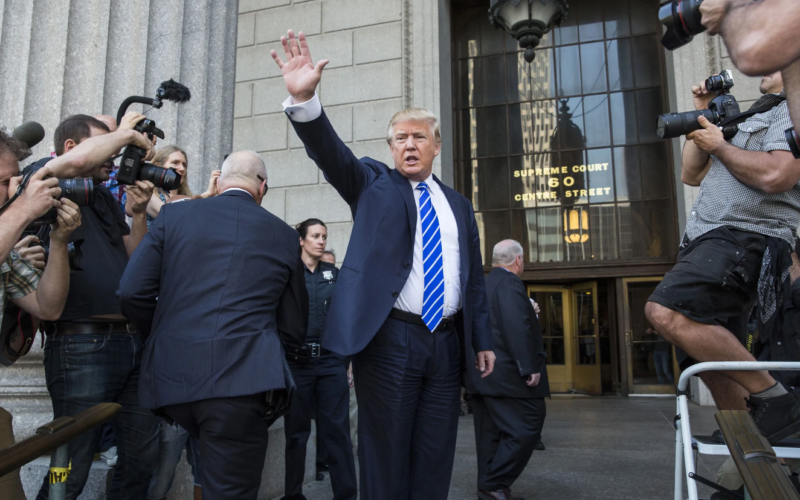Donald Trump, the 45th President of the United States, found himself in the midst of a legal battle that could have far-reaching implications. He appeared in a New York courtroom to face the civil fraud trial brought forward by New York Attorney General Letitia James. The case centers on accusations of fraudulent practices within the Trump Organization.
The trial revolves around allegations that the Trump Organization inflated the value of its properties to obtain favorable loans and tax benefits, while simultaneously downplaying their worth for tax assessment purposes. Attorney General Letitia James argues that these actions constitute fraudulent conduct and seeks to recover $250 million in damages.
The trial is a high-stakes legal showdown with ramifications that extend beyond Donald Trump’s personal financial matters. It touches upon issues of transparency, accountability, and the integrity of financial dealings by prominent individuals and organizations.
Former President Trump has vehemently denied any wrongdoing and maintains that the allegations are politically motivated. His legal team contends that the case is part of a broader effort to tarnish his reputation and undermine his political influence.
Prior to the trial’s commencement, Trump conveyed to reporters that he considered the case to be a “fraudulent scheme” and a politically motivated vendetta led by Letitia James. During a break in proceedings, he characterized the Democrat as “a corrupt individual” and criticized her for causing people to leave New York.
In his defense, Trump’s argument centers on the notion that his annual financial statements were essentially approximations, emphasizing that assessing the value of real estate involves a degree of subjectivity. Trump’s legal team argued that the banks with which he shared these statements were not deceived, as they profited from their interactions with him and didn’t rely solely on his estimates.
Christopher M. Kise, Trump’s lead attorney, asserted that there was no malicious intent behind the discrepancies in valuation, stating that these figures reflected the evolution of a multifaceted and sophisticated real estate development corporation. Kise emphasized that financial institutions and insurers were well aware that these statements were estimates, not absolute figures.
Alina Habba, another attorney involved in the case, separately informed the court that Trump’s assets could be likened to “Mona Lisa properties,” suggesting that they possessed the potential to command premium prices if Trump were to sell them.
The outcome of this trial could have significant consequences for both Donald Trump and the Trump Organization. A ruling in favor of the Attorney General could result in substantial financial penalties and legal repercussions. Furthermore, the trial may set a precedent for how allegations of financial misconduct by public figures are addressed in the legal realm, shaping future investigations and legal actions.








